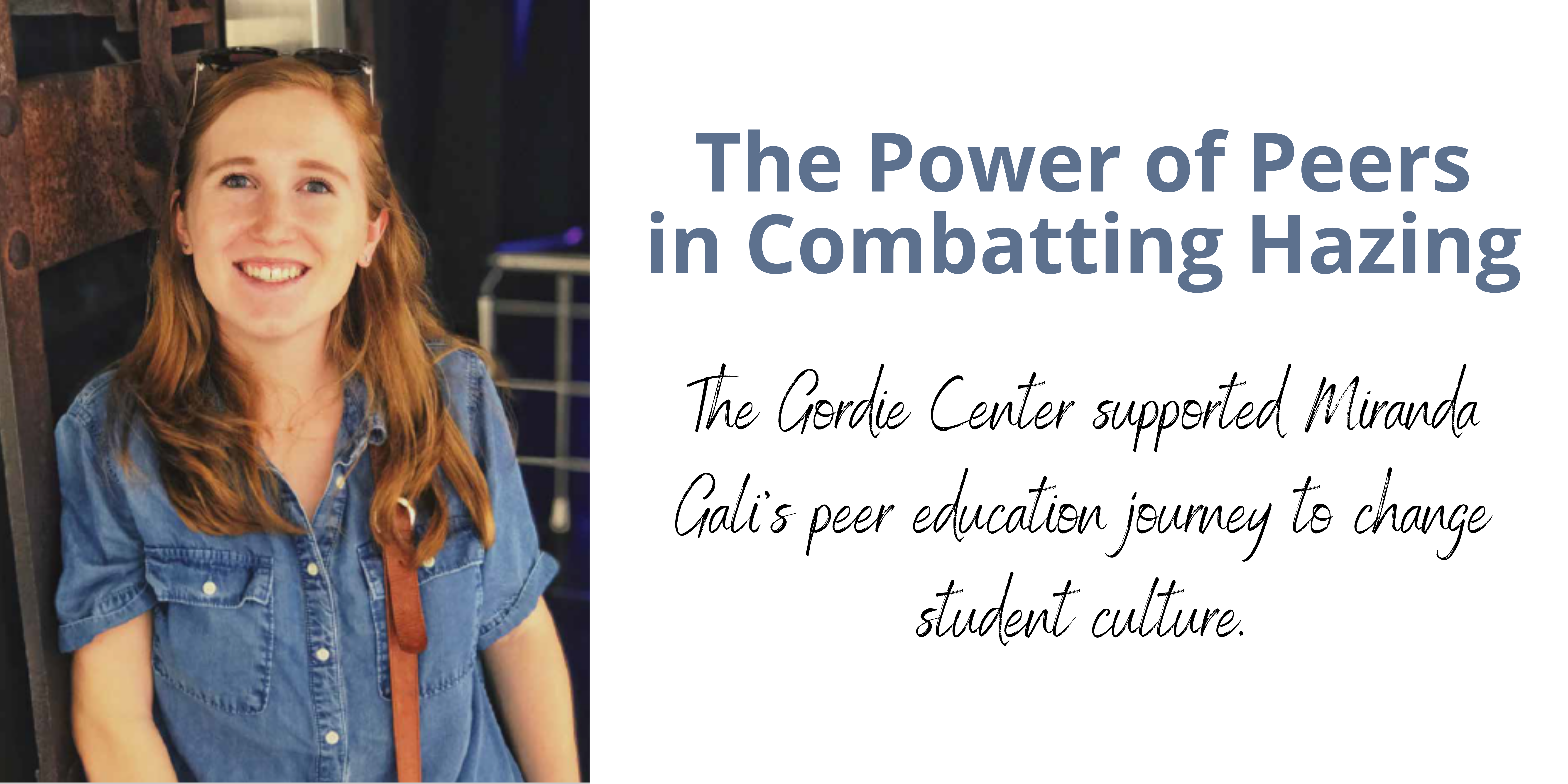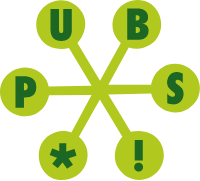
This article originally appeared in the Gordie Center's 2018 print publication.
Miranda Gali from Middleburg, Virginia (where she attended Foxcroft School), graduated from the University of Virginia (UVA) in May, earning her bachelor’s degree in English with a minor in Bioethics. During her four years at UVA, Miranda served her community as a peer tutor in the UVA Writing Center, as a program director for HELPLine (a student-run short-term crisis intervention hotline), as a peer educator on UVA’s Alcohol and Drug Abuse Prevention Team (ADAPT), as a member of the UVA Hazing Prevention Advisory Council, and as the Gordie Center’s student assistant.
“ADAPT members facilitate HAZE for student groups at UVA, so I was initially exposed to Gordie’s story and the Gordie Center when I joined ADAPT,” Miranda says. “As I learned more about hazing and alcohol overdose prevention, I became really passionate about it because I don’t think it is something students consider as often. Hazing is something we should be talking about on campus just like every other health concern facing students.”
Miranda joined ADAPT as a sophomore at UVA, and served as one of the group’s co-chairs last year. She believes strongly in the power of peer education in changing student culture. “I think peer education is important because it helps facilitate a space for open and honest conversation. When I am giving presentations, I make sure to remind students that I am also a student because it helps level the playing field in a way. It also helps me get some really great questions, as students aren’t afraid of getting in trouble or asking the “wrong” question. In those spaces, we can really talk about what is actually important to that student group or organization, and what barriers they might face when it comes to hazing prevention.”
Because of the high-profile hazing cases continually in the news over the last year, Miranda says that discussing hazing with UVA students has been especially poignant. “It seems like people are a lot more engaged with the subject than they have ever been before. When I talk about Gordie’s story, I usually have students note the similarities between his case and other more recent ones. It seems like students are really ready to try to make a change in their community. My job as a peer educator is about helping them communicate and find the best ways to make that first step toward making their organizations a better, more accepting place.”
“HAZE is a very powerful educational tool. I think every single time I’ve given a HAZE presentation, I’ve had a student comment on how much seeing the film impacted how they thought about their own actions, such as let- ting a friend “sleep it off.” My favorite part of presenting HAZE is definitely the discussion afterwards, especially when talking about how they can take Gordie’s story and use it to make positive changes in their own organization.”
Miranda encourages students to become involved in peer education on their campuses, because not only did she meet some of her best friends through ADAPT, she feels like she has been able to leave a legacy at UVA. “Students are more aware of red flag situations, and are starting to feel more confident in stepping up and intervening. I think there is still a lot of work we can do, but at least the conversation has been started. Now, it is our job as peer educators to keep that conversation going.”
Hazing and alcohol overdose prevention work is challenging because the causes are complex and information alone is not enough. Well-trained peer educators equipped with evidence-informed, student-tested materials can engage high school and college students in conversations that can change the culture. Miranda supports the Gordie Center because, as she says, “students at younger and younger ages are being asked to navigate things like hazing and alcohol, and the work the Gordie Center does really helps get good information to those students so they can make informed decisions about their health.”
